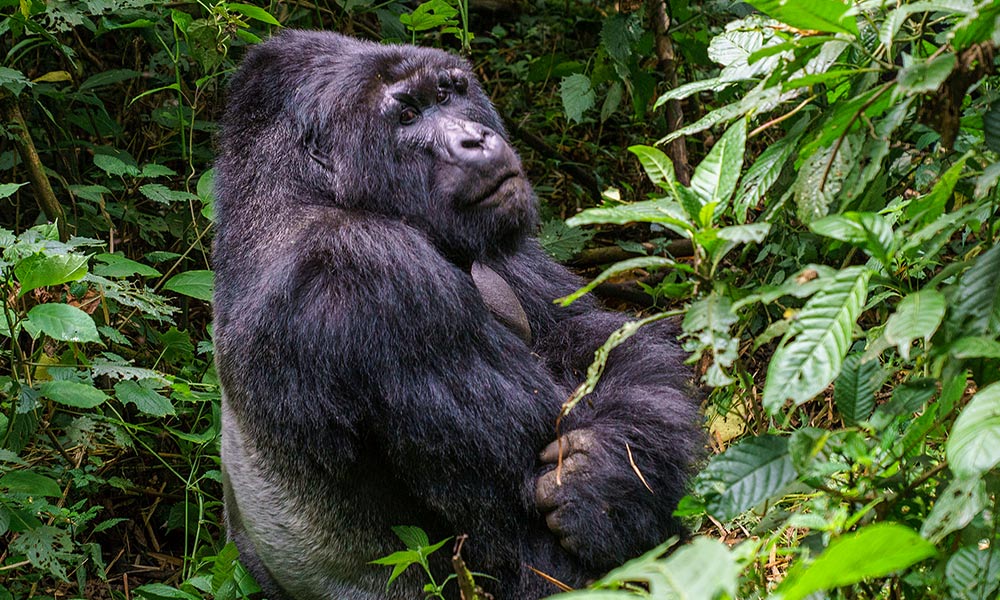Which game reserve you decide to visit depends on many factors, such as the type of scenery you are expecting to see, the different animal species (not all reserves have the ‘Big Five’ animals), and what other activities you are planning for the holiday. We have listed some of the typical priorities below.
Location
There are many game reserves in Sub-Saharan Africa, all catering to different budgets and requirements. Not all the reserves offer wilderness trails (e.g. camping out in the bush), but all reserves offer game drives, and most offer guided bush walks.
If you are planning your safari to coincide with other activities, you will probably want to choose a reserve near to these activities. For example, if you are planning to do the Garden Route in the Western Cape of South Africa, you may want to choose a game reserve nearby, rather than trekking across the country to visit a reserve in the Northern Province.
The majority of reserves are easy to travel to, particularly in South Africa as the road network is very good there. For more difficult areas to access such as the Okavango Delta in Botswana, the lodges will assist you in getting there by providing details of flights to the local airports and airstrips. Many reserves will arrange to collect you from the nearest town, city or airport, so you do not necessarily need to hire your own transportation, and most tour operators arrange all the logistics on your behalf. So all you have to do is turn up, and enjoy yourself!
If you are feeling adventurous and you want to travel to a reserve where the roads are not so great, hire a 4×4 and take plenty of water with you. And don’t forget your mobile phone in case of emergencies!
Malaria
Malaria is one of the greatest dangers in Africa. In the summer months malaria is more prevalent due to the increase in mosquito populations.
Mosquitoes of the Anopheles genus carry the Plasmodium parasite, which in turn harbours the disease. Only female mosquitoes bite, as they need the blood in order to produce their eggs. Otherwise mosquitoes feed on sugar sources, such as plant nectar.
Some forms of malaria have become resistant to the anti-malarial drugs, but new drugs are being produced all the time to combat these strains. You should consult your doctor for medical advice as to which drug to take, as some have side effects whilst others don’t.
Common symptoms of malaria are fever, shivering, headaches, joint-ache and vomiting. The most severe form of malaria is caused by the P. falciparum parasite, and this will prove fatal if not treated quickly.
However, many game reserves are situated in non-malarial areas, so it is not necessary to take any anti-malarial medication for these visits. You should check with the lodge as to whether they are in a malarial area or not. In South Africa, the Eastern, Western and Northern Capes, North-West Province and the Waterberg region of Limpopo are all malaria-free.
For more information and advice about malaria, please see our Health and Safety section.
Animal Species
There are a huge variety of species in the African bush. The larger game reserves all have the ‘Big Five’ animals (lion, leopard, elephant, rhino, buffalo), but some of the other reserves are rich in bird varieties, whilst others have rare species such as Wild Dogs.
If you want to see a particular species other than the Big Five (which is recommended!), such as Springbok, you will need to check the species list of the particular reserve to ensure they have the animals you want to see. Please note, just because a reserve has a particular species, this does not guarantee that you will see it!
For more information about the common species of the bush, please see our Fauna & Flora section.
Vegetation Types
If you are interested in botany, you will be pleased to hear that most reserves have a huge variety of plants, from Acacia and Marula trees to Buffalo Thorn and Leadwoods, amongst many more.
Generally, game reserves have a mixture of savanna and grassland habitats, with woodlands and thicket areas too, but this depends on what region you are visiting. Please see our biomes section for more details of the different regional vegetation types, and our flora section for more detailed accounts of the common plant species you are likely to encounter and their uses.
National Park or Private Reserve
Aside from the National Parks, there are a host of privately owned game reserves in Southern Africa. There is not much difference between them, although most private reserves will not allow self-drive safaris, and they also restrict the amount of game viewing activity to ensure that the park doesn’t get overcrowded with game viewing vehicles.
Most reserves tend to be quietest during the week when the locals are not visiting for a weekend outing. For more information about specific reserves, please visit our community forum to see if there are any reviews from fellow safari enthusiasts about where they’ve stayed.








